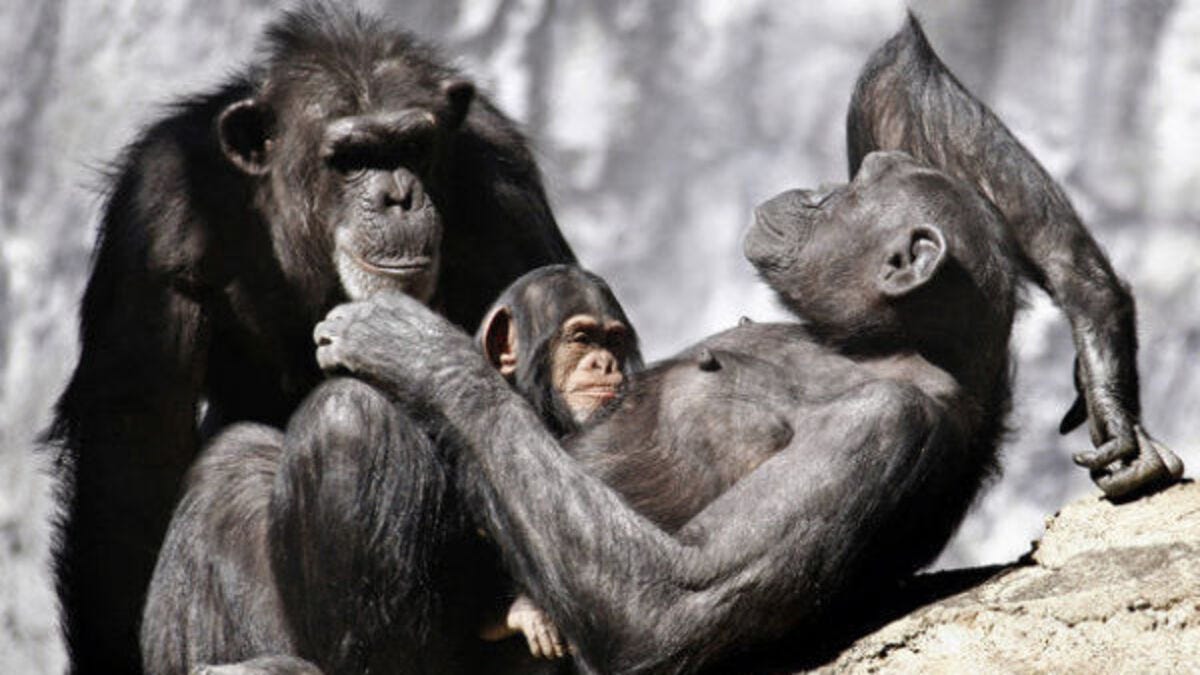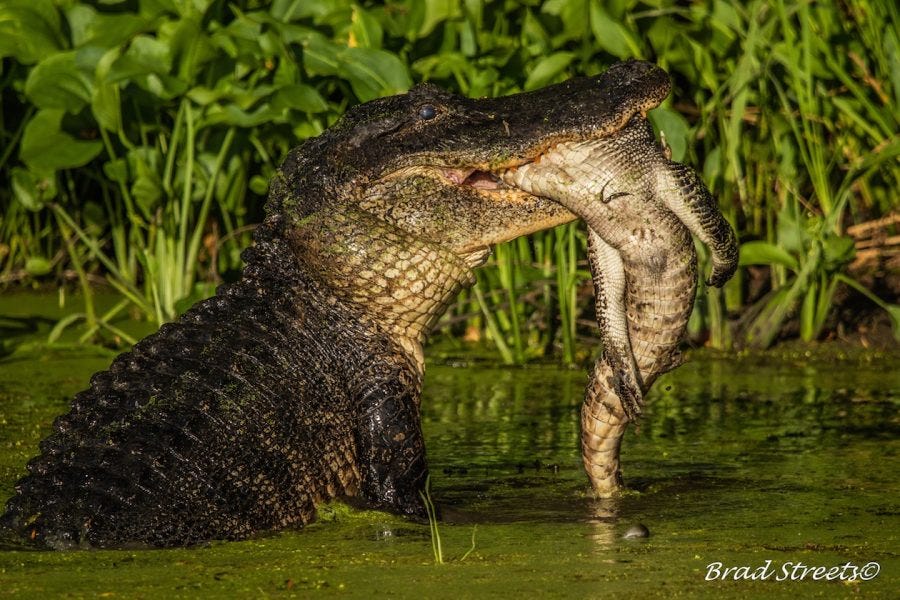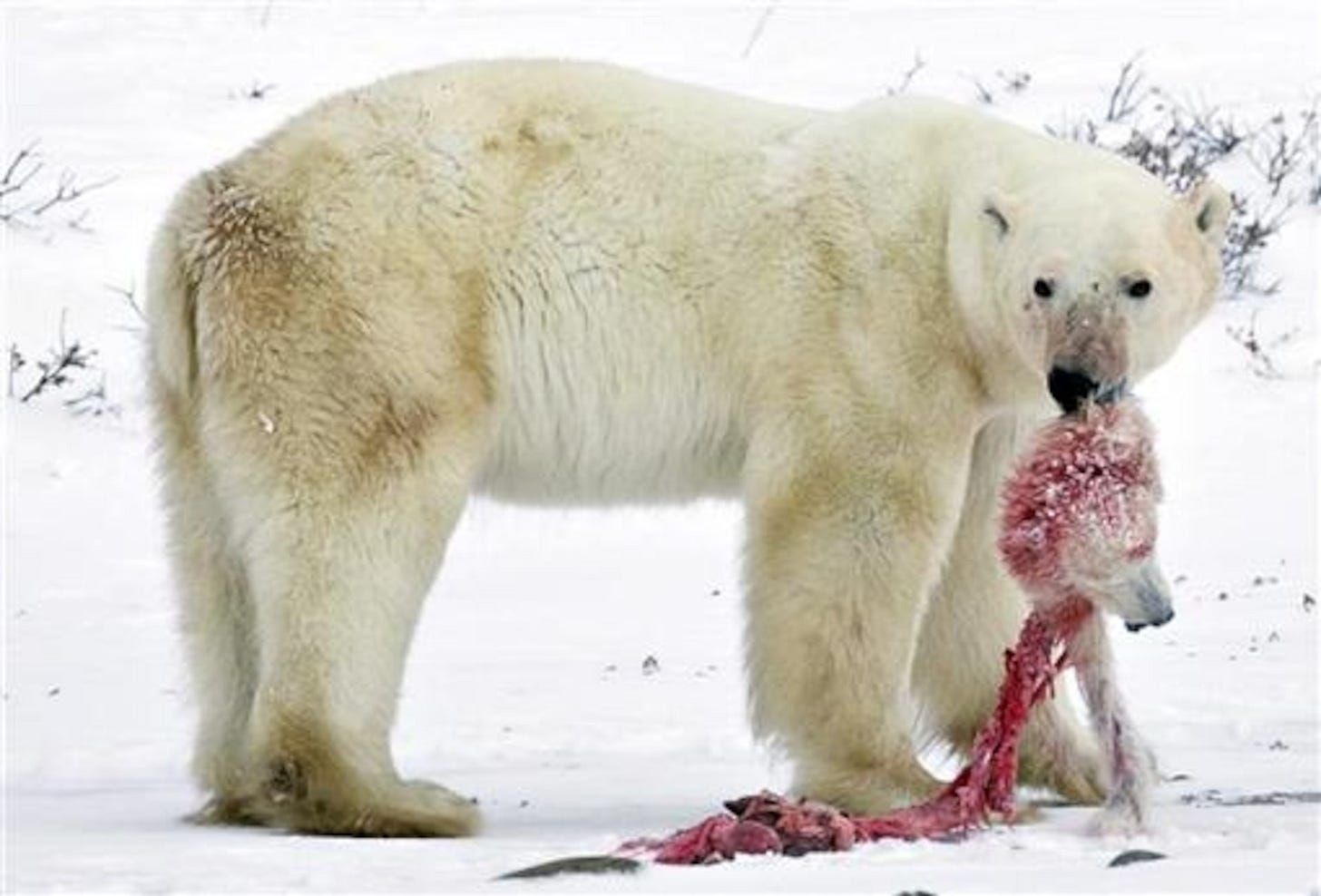Your Boss, Not Your Lover
Selfish genes, that is
If we had evolved under radically different selection pressures, we would have radically different moral behaviour.
Let me explain.
Moral realism is the view that there are objective moral facts. It’s not like ice cream, where preference is all that matters. It’s like 1+1 = 2. 1+1 = 2 is always true, no matter your preferences. The obvious question is, are our current moral beliefs objectively true? How can we find out?
In this essay, I’ll give a probabilistic argument, based on evolutionary biology, why it is highly likely our current morality is nowhere near objectively true, and why it will be incredibly hard for our species to ever discover “objective” morality, if it even exists.
Setting the stage
Our moral behaviour, like anything, has a variety of causes. Some of them good, but some of them counter-productive. For example, liberal philosophy became popular in the 17th and 18th centuries partly because its arguments for individual rights, consent of the governed, and economic freedom were intellectually and morally compelling. These are good causes in my mind. You want our moral behaviour to be caused by good argumentation, not by bad causes such as force or bias, for example.
But, it would be disengenuous to leave the conversation there. Liberal philosophy didn’t become popular simply because it was argued well. Many facets are deeply intuitive for our species, not because we evolved to find moral truth, but because much about liberal philosophy was adaptive 100,000 years ago. (get into this later)
Of course, you don’t want evolution to cause your beliefs. If certain moral beliefs are adaptive and some not, the adaptive ones have no reason to be “the right” beliefs.
Because evolution doesn’t select for the right beliefs, it selects for the beliefs that help you propagate your genes. And that is completely orthogonal to the mission of moral philosophy. Logic and reason are conducive to true beliefs, selfish genes are not.
So you don’t want your moral beliefs to be tainted by evolution, even slightly. You want it all to be caused by reason. Because for every 1% increase in evolution’s influence, expect a proportional decrease in the probability that they are true.
Moral philosopher: “I reject your assumption. Our moral beliefs have no causal connection to evolution. Moral truth is found simply through argumentation. And why are you trying to bring biology into this? Biology makes falsifiable claims. But that’s impossible in moral philosophy.”
Impossible? Really?
“Yes. You can’t test moral judgements, empirical idiot.”
Well let’s try.
I may never understand moral philosophers and their preoccupations. And this might be awkward to shove them into the world of science. But I don’t care. In fact, I think it’ll be very good for them. Plus, I like Darwin. And this’ll be lots of fun. Think of the essay as, “Derek Parfit and Charles Darwin walk into a bar…”
The Argument, Finally
Simple example of moral behaviour being caused by evolution: Bacteria display a behaviour called chemotaxis, which is the ability to move away from chemicals they don’t like and towards ones they do. They’ll move closer to glucose, farther from acid. This is basic pleasure-pain behaviour. That was 3.5 billion years ago. (What, how is this moral(?) you say. Bear with me, I get to that)
Fast forward 3 billion years, and social mammals like wolves and chimpanzees evolve. I’m skipping a lot of links in the chain here, but chimps, because they evolve from bacteria, keep certain basic behaviours, such as pain avoidance. And they also inherit others from more recent ancestors, such as social grooming for bonds & parasite control, (from earlier primates) and kin bias & reciprocal food sharing, which dates back to tit-for-tat reciprocity found in bats, dolphins, and corvids.
Chimps add on a couple new things, too. Chimps are documented as punishing freeloaders, ganging up on bullies, (often very violently) and even using rudimentary tools.
Some of the first hominins, such as Australopithecus, are the next step,
Look, I’ll just skip to humans. I know you didn’t open Substack to read about biology.
Humans are kind of the apex of complexity. We evolved from mammals which evolved from fish which evolved from… and because of that, we move away from painful activity, and towards pleasurable activity, (hat tip bacteria) (can you pre-empt the philosophy that has a causal connection to this trait by the way?) we punish freeloaders, have kin bias, and have reciprocal food sharing (thanks chimpanzees!). Unfortunately, we also inherited their out group bias and occasional extreme violence. We also inherited things that aren’t positive or negative, such as our tailbone, and our goosebumps when we get anxious.
Now, the point: All of these behaviours, from bacteria to homo sapiens, are adaptive, (except for the last two I mentioned, which are spillovers from previously adaptive traits). Bacteria that moved away from acid propagated their genes better, as did chimps that removed parasites from chimps that did it for them (reciprocal altruism). Not only are they adaptive, I want you to think of them as moral stances. I want you to see bacteria, chimps, snakes, etc, as moral agents. If bacteria could talk, they would sound much like a utilitarian: “Pain is bad, pleasure is good. Therefore, Bacteria shouldn’t be forced into acidic areas.”
I can even imagine a bacterial Bentham’s Bulldog that writes about how his fellow bacteria should donate to viruses. “I know it sounds unintuitive, but imagine that you discovered that there were 150 viruses about to be boiled alive. There’s a machine designed to anesthetize them, so that they don’t have to struggle and writhe in agony for many minutes. Sadly, the machine is broken. To fix it, you would have to spend one single penny.
Of course you should do it!”
Sorry, I’m getting derailed. Bentham and shrimp have been on my mind.
Anyway, this whole discussion is meant to demonstrate how unspecial we are.
Obviously, most grant that much of what makes us “us” is caused by our evolutionary history. But evolution does not stop at the neck. And no I’m not trying to say you can get goosebumps on your neck, I’m trying to say that the moral beliefs you hold are heavily influenced by factors which did not value moral truth!
Examples
Our species is uniquely dependent on cooperation. Even more so than chimps. Our kids have long gestation periods, and mature slowly, thus, our species requires many years of cooperative rearing. (This incentivized monogamy, a moral stance of course.) Also, humans that cooperated in hunting, gathering, cooking, building, and so forth, generated higher returns to scale.
Due to this, we became a tribal species, where moral behaviour, such as reciprocal altruism, empathy, “family first” loyalty, obligation to friends, and in-group and out-group bias, were all highly adaptive. Playing fair with trading partners (reputation in repeated games) was also adaptive because it keeps exchange networks open, and deterred cheaters, which is why we get angry at unfair splits, and have an instinct to punish freeloaders.
Now let’s apply this to philosophy.
Rawls’s “veil of ignorance” dramatizes an ancestral fairness heuristic: don’t design a rule you wouldn’t accept from the other side of the trade. Chimps would agree with this moral claim. And so do we, which is why our market and legal systems enforce impersonal exchange, because that is simply an expansion of this adaptive heuristic.
Our aversion to lying and killing unjustly descends from our evolutionary heritage too. Serial killers were not adaptive, nor were frequently lying tribe members, for obvious intra-band cooperation reasons. Thus, Kantian ethics owes much to evolution.
Dominance aversion evolved to keep alpha bullies in line (think of chimps ganging up on an overbearing male). Liberal institutions like a separation of powers, elections, and protest rights, scale that instinct into formal guardrails.
Selfishness was maladaptive in tribes, which explains why people call it “moral” to tip your waiter or give food to the poor.
What I hinted at earlier, our aversion to pain and desire for pleasure, is the bedrock of utilitarianism.
This is just a taste of how influenced our beliefs are. You might say, “but liberal cosmopolitism is so anti-tribal, how can that be influenced by evolution?”
I do not want to give the impression that I think everything can be explained by evolution. I am making a weaker claim: that genes supply biases. In this example, liberal cosmopolitanism hacks the same fairness/empathy modules that were adaptive within bands of humans, and levels it up to ever-larger circles where conditions (security, communication tech) reward it. Outgroup bias is a constraint, but most of the adaptive traits I have listed above are complimentary with liberalism. (Not a coincidence)
So to conclude this point, almost all ethics are working from an evolutionary base. Some emphasize certain adaptive traits over others, but they are all working within the same evolutionary infrastructure. Liberal ethics, like all others, is an arrangement of adaptive traits. Think of it like a musical scale, where only certain notes sound good. Different combinations of notes create unique songs. But try to solo out of the scale, and it doesn’t work very well.
Evolution has agenda-setting power on our morality.
It leads us down certain paths, closes off others, makes some conclusions deeply intuitive, others not, and so forth.
Which is why I said at the beginning of the article that “it seems to me, if we had evolved under radically different selection pressures, we would have radically different moral behaviour.”
And this is a problem, because, as I said, “evolution doesn’t select for the right beliefs, it selects for the beliefs that help you propagate your genes. And that is completely orthogonal to the mission of moral philosophy.”
I thought of this after listening to a Richard Dawkins podcast about the evolutionary causes of love for music. But I wasn’t the first to think of this. Later, I found Sharon Street’s seminal paper on this exact subject, which she frames as a “Darwinian dilemma.” Sharon writes it out in more sophisticated language:
To abandon the tracking account - in other words, to abandon the view that selective pressures pushed us toward the acceptance of the independent evaluative truths - is just to adopt the view that selective pressures either pushed us away from or pushed us in ways that bear no relation to these evaluative truths. And to take this view is just to land oneself back in the first horn of the dilemma, in which one claims that there is no relation be- tween selective pressures on our evaluative judgements and the posited independent truths. Realism about value, then, has no escape: it is forced to accept either the tracking ac- count of the relation or else the view that there is no relation at all, and both of these options are unacceptable.
Tap into your inner child, (shake him if unresponsive) and imagine for just a second, if snakes had evolved intelligence. Take seriously what I mean by radically different selection pressures. What do you think would be their species’ main schools of moral philosophy? Would they be identical to ours? Or would they be more selfish, would they make Nietzsche look like a coastal egalitarian? Bryan Caplan look like a maoist? If you have a feeling they would not be identical, then you agree with me, at least partially, that genes play a part in this.
I certainly think so. The Overton window would, at the very least, be moved much farther towards egoist/individualist philosophy. Vice versa with herd animals like Bison or Sheep.
Let’s stay with snakes because I think it’s fun to speculate.
Of course, the snakes would not want to needlessly waste venom in constant fights with one another. So I think a legal system would be set up to disincentivize that for the sake of productivity. But perhaps only in special zones where a minimum of cooperation was necessary. But outside of them, (since snakes eat each other regularly) I would imagine that fights and cannibalism would be completely normal, and the idea of a stronger snake eating the entire family of a weaker one would be seen as good in their society.
I also think they would be highly Buddhist/Stoic, as they don’t like to move too much (cold-blooded) or waste valuable venom, so I think zen aesthetics and temperaments would reign supreme. Only moving as much as you have to.
So basically, Hobbes with a small dose of liberal style law only where necessary. This is because snakes would obviously lack any pity or empathy, due to them never facing any selection pressures wherein that would be adaptive. (unlike us!)
No one in our species even knows the true meaning of the world “selfish” until they’ve thought about intelligent Snakes. Your roomate who doesn’t take out the trash is selfish compared to other members of his species, but they are no match for the praying mantis that eats her husband, or the asshole fly that keeps licking your forehead for minutes on end. No, at least the human puts deodorant on for fear of social ridicule, and doesn’t kill the offspring of his uncle out of compassion for their existence.
So overall, expect a might makes right, egoist, territorial society that lacks most forms of empathy. But don’t think this isn’t a “moral” society. They certainly have moral takes, just not the ones that make you happy. Or imagine the opposite, if Bees became intelligent. The society would lack any individuality at all. Workers would willingly kill themselves for their queens. Children would be raised communally.
The more you think about it, bees and snakes and so forth have terrible lifestyles. It all sounds pretty amoral! And why do you think you think that? Because of your selection pressures! Snakes and bees and buffalo would say the same about our morality. I can keep going with this stuff, with goats, with whales, what have you. But I think I’ve made the point clear.
Again, we are not special, we just happened to become intelligent first, and thus, our overton window’s placement seems like the only correct one.
As science fiction as this sounds, Street’s dilemma simply is reality. It’s highly unlikely that moral truths float free of any species’ evolutionary history. This should induce deep skpeticism of our own moral behaviour.
Now you might be thinking, “Jesus Christ, this is an insane brand of subjectivism. Do you not think there’s any moral truth?”
I don’t know. Perhaps there is, perhaps not. However, I do know one thing. Seeing as there are basically infinite micro differences between moralities, and the fact that our genes did not select for whatever this truth is, but selected instead for a variable that doesn’t track moral truth at all, I conclude rather easily that the probability our beliefs happen to be the “correct ones” (if there are any ) is incredibly low. Of course, I would say the same for snakes. I would say the same for any species. A coincidence is in the cards, but it’s unlikely.
If we could somehow design a being that had none of evolution’s fingerprints all over it, then I would trust their moral judgements. But we are much too tainted. Too marinated in over 4 billion years of history. We can make better and worse arguments, which is our super power, and one of the reasons liberalism is popular, but always be aware of the agenda-setting power of evolution. Layla sounds good because most of the riff is pulled right out of the pentatonic scale. Liberalism and Kantian ethics sound good because most of the ideas are pulled right out of the pool of hominids’ adaptive moral traits.
It’s very hard to get out of this rut because our brain is wired this way, and has been for a long time. if you’re truly nonconformist, perhaps you can try to neglect our biases and find “the truth”. Small steps of rebellious creativity are likely to be directionally correct if well argued.
Here, I’ll start.
UPDATE: I punched someone in a wheel chair and am now in jail. Bail is steep. Paid subscriptions would be greatly appreciated.





I'm going to post a few thoughts on this one as a thread.
'Moral behaviour' is interesting, but an empirical domain. We can have normative discourse about the correct moral beliefs (which track moral truths) without reference to observed behaviour. I am not sure how 'moral behaviour' is different from action, broadly construed, nor why an evolutionary story about the source of our action would have implications for moral philosophy.
Utilitarians tend to be maximizers, identifying good action as the best course available (in expectation) at the time of action. Nevertheless, utilitarians are not crazy. They don't (practically) expect anyone's behaviour to actually maximize utility--their claim is that the more one has their action do so, the more good it is. Good argument can make behaviour more good in this sense, someone like Peter Singer has in fact changed a lot of lives, but it's not a primary aim of normative theory.